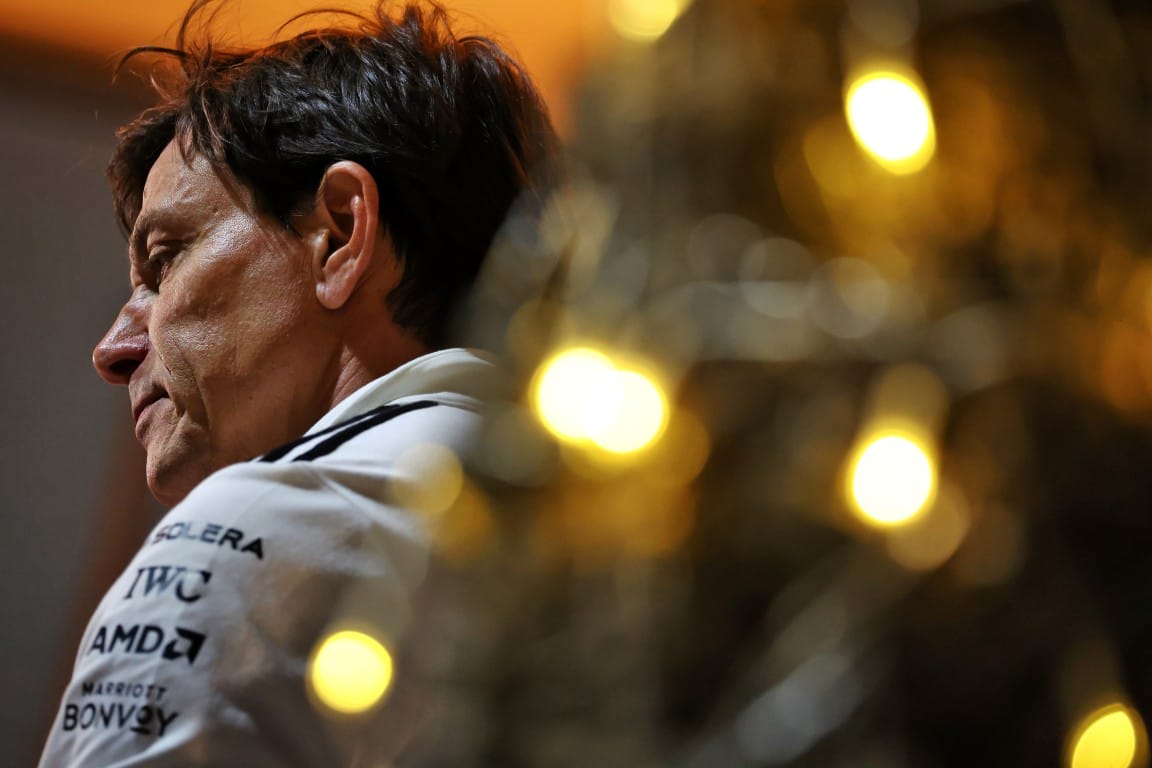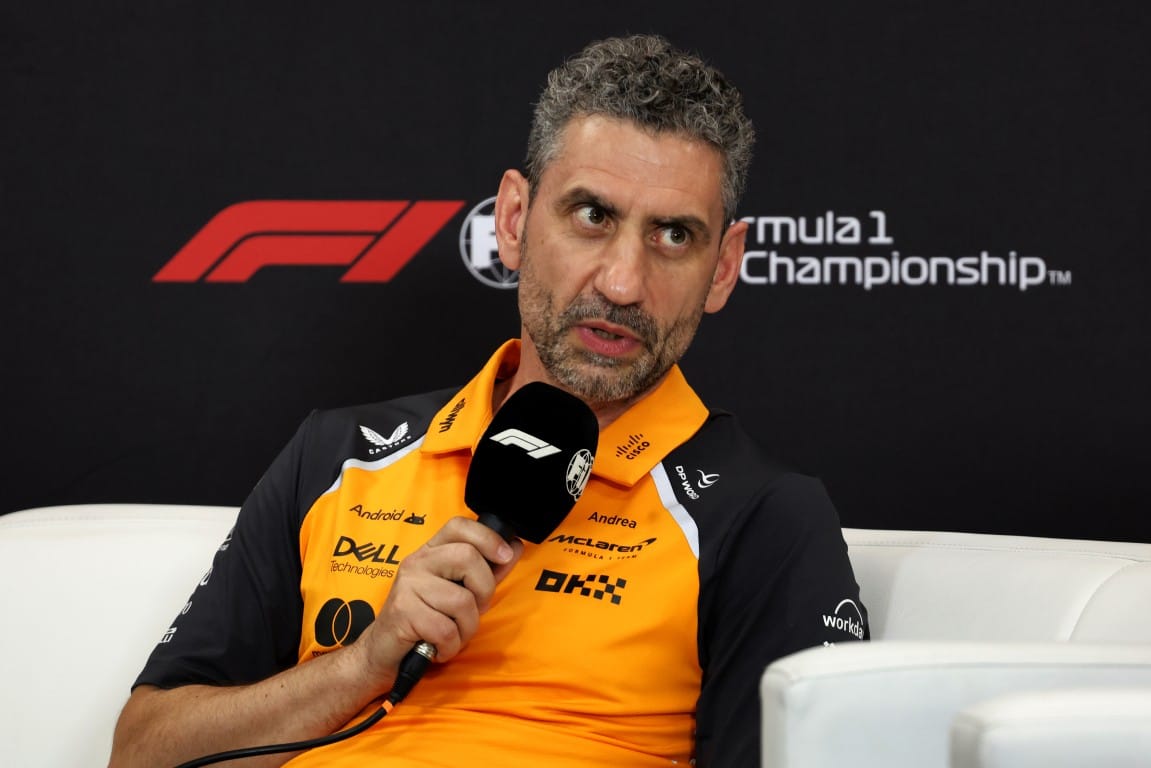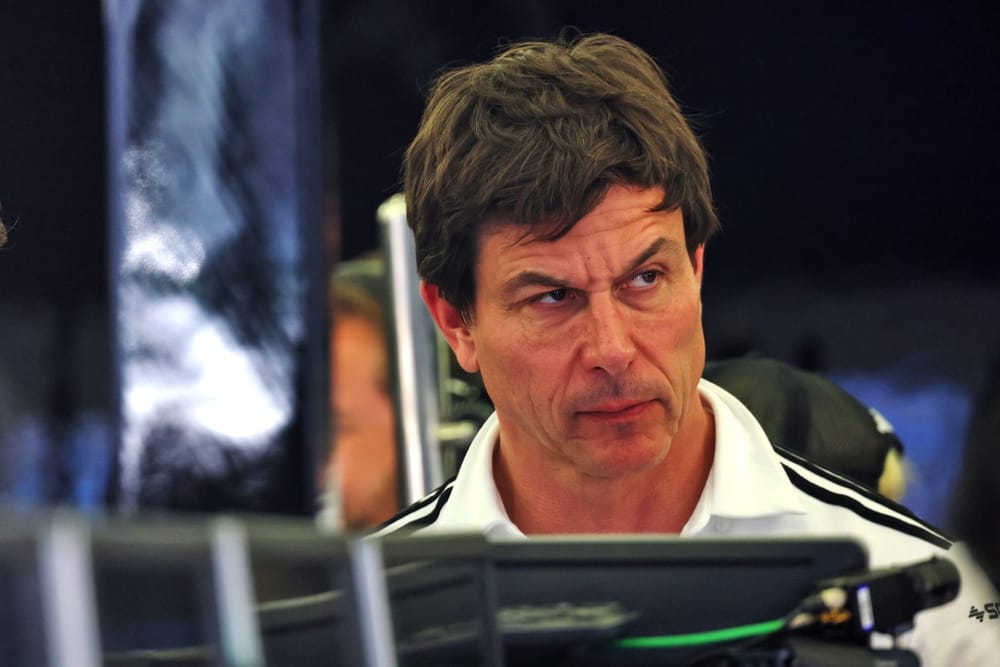Mercedes believes talks to scale back a key component of Formula 1's new-for-2026 engine regulations are a “joke”.
The Race revealed ahead of the Saudi Arabian Grand Prix that F1 chiefs will discuss with teams next week the idea of a solution to fears that cars could repeatedly run out of energy next year.
The solution involves F1 moving away from one of the key components of the 2026 regulations in races (but not qualifying) - the 50/50 power split between the internal combustion engine and battery.
With the regulations as they are now, there are concerns from some quarters that the new turbo hybrid power units won’t have enough harvesting to allow for sufficient battery deployment.
That could mean cars run out of energy halfway down straights at power-sensitive circuits like Monza.
Some manufacturers believe the current regulations are robust enough to prevent such problems at most tracks, but others are concerned, and the FIA has been conducting a further analysis of the situation.
The Race understands a proposal has been put forward for discussion at next week’s F1 Commission meeting to introduce a major change for the regulations.
That hasn’t been well-received at Mercedes.

“Reading the agenda of the F1 commission is almost as hilarious as reading some of the comments that I see on Twitter on American politics,” Wolff said on Sunday in Jeddah.
“I really want to protect ourselves and make no comment - but it’s a joke.
“A week ago there’s an engine meeting [on Friday in Bahrain], and [now] things like this end up on the agenda again.”
Mercedes customer McLaren appears more open to some changes being made, if it's for the good of the series.
"Well, my opinion is very clear, the principle I want to state very strongly is that it’s the responsibility of all the stakeholders to make sure that the 2026 regulations are successful,” McLaren team principal Andrea Stella said.
“Because there’s no point in teams competing with each other if we don’t have a good sport, and the quality of the sport, the quality of the spectacle, the quality of the racing is a function of the product from a chassis and power unit point of view.

“So I think keeping the conversation open, such that we really go into the details, considering overtaking, considering power deployment, considering power harvesting - everything that determines the quality of the product, therefore the spectacle, therefore the health of the business, we should look into that and we shouldn’t say it’s frozen.
“I think we need to have this open mind, keep working on that, obviously these adjustments don’t have to be structural, we’re not going to change the hardware, but if there’s minor changes that we need to apply in the way we use the hardware, and this improves these characteristics which I said, then I think this is part of the responsibilities of all the stakeholders.
“When I say 'the stakeholders' it’s F1, the FIA and the teams. I think we need to put the common interest before our own.”



